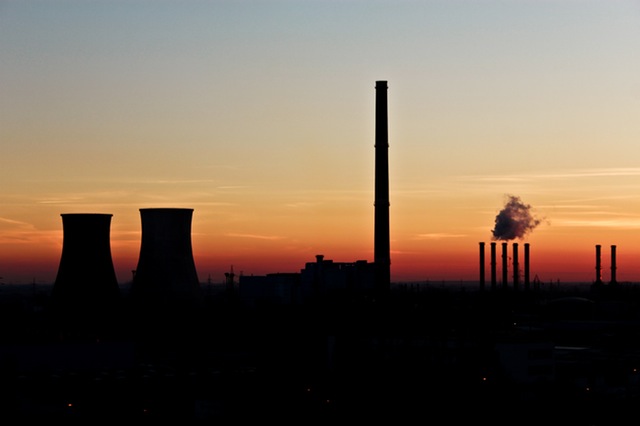Fossil fuels are burning, the world is warming and storms are brewing. This we all know (apart from the most powerful man (-elect) in the free world and his posse, but that’s an argument for another time, namely, when we’re knee deep in seawater and our skin is crisping). So, if the truth of climate change is something most thinking people take as a given, why is it a topic so rarely tackled by contemporary novelists?
Of course, there are novels that make use of the problem of climate change. Ian McEwan’s “Solar” and Margaret Atwood’s “The Year of the Flood“ come to mind. In these works McEwan is typically focused on the shortcomings of his male protagonist and Atwood covers her warning in a dystopian setting and zany sci-fi names.
Still, the idea that the world is changing here and now, and the ability to convey that problem, is lost. Is this reticence for the good of the story, does it betray a lack of conviction, or is it due to something else entirely?
Perhaps there are simple reasons for an absence of climate change novels, and why the few that do confront it tend to skirt around the edges of the oncoming catastrophe. One excuse that comes to mind is the same one regular people who can’t be bothered to recycle use daily to justify ignoring the problem: it’s just too big.
This is a good excuse. Our brains have not evolved to cope with such large-scale issues and cannot easily grasp the idea of the globe changing on such a scale. Even though the changes are measurable over the timescale of a human lifetime, the real catastrophic problems are happening at a pace not noticeable to a regular, busy person.
Our brain is better adapted to middle-range, animalistic issues, like finding food before the sun sets, so maybe it’s no surprise that the potential end of the planet through steady increase in global temperature is more than most can hope to navigate when reading a novel, let alone writing one.
Another excuse is that, like any problem, (such as the mole that looks a little bigger today than yesterday or the flashing engine light on your dashboard) climate change is just easier to ignore because it doesn’t affect our daily lives. (Unless, of course, you’re a polar bear).
The current literary trend tilts towards stories that are introspective and personal. This is because (and it’s not our fault) we care a lot about ourselves. There is a larger market for narratives that focus on how an individual fits, or fails to fit, into our label- and identity-obsessed society. These narratives are, of course, important as people fight for their rights to exist without oppression. They also mean that the existential issues that affect humankind at large can play second fiddle to issues concerning the individual.
I don’t think introspective novels should step out of the light and give climate change plotlines a starring role, but I do think novelists could better combine the two. I wonder whether their talents are best used to advertise their personal agenda, or the problems facing the planet?
But perhaps the best excuse: reality is bleak enough to want to deny it. This one best explains the population of deniers that are slowly climbing the White House walls and holding a magnifying glass to the Paris Agreement under the heat of an early summer.
The idea of parts of the world becoming uninhabitable and our control over our future slipping through our fingers into the hands of greater, indifferent powers is not a happy one. It is maybe such an unhappy one that not many novelists want to spend a great deal of their time thinking about, and have their reputation attached to, a depressing and real existential crisis.
Hopefully, as this problem of climate change worsens under Donald Drumpf’s administration, novelists will be motivated to take up the pen and confront this problem head on. Non-fiction writing on this topic is abundant, but there is no better way to transfer moral ideas and translate the difficult consequences of living on earth than fiction. It can take us into the future, back into the past, put a person in our place and bring the issue of climate change to the forefront of public discussion through the power of literary empathy.
In conclusion, it would be helpful for more novelists to start acknowledging the time we live in and incorporating it into their novels so that a wider understanding can begin. I am desperately afraid of the world ending, which is forgivable, I think, It is the job of writers now to rally the troops and whip up interest. If we don’t, when the earth burns, the books will be the first things to go.
A few helpful novels:
Mr. Eternity – Aaron Their
Odds Against Tomorrow – Nathaniel Rich
Love in the Anthropocene – Bonnie Nazdam and Dale Jamieson
 Josh King received his MFA from Adelphi University in New York, and now lives in the UK. He divides his time between writing fiction, drama and drawing comics.
Josh King received his MFA from Adelphi University in New York, and now lives in the UK. He divides his time between writing fiction, drama and drawing comics.


0 comments on “Poles Apart: Climate Change and the Literary World”